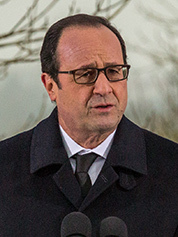There is no doubt that we have not moved quickly enough to avoid the horrible consequences that we are already experiencing from a rapidly changing climate. And it is only going to get worse for the next several decades based on the CO2 and methane that is building up in the atmosphere and will continue to do so for the foreseeable future. We are learning how to adopt to changes such as historic heat waves like the one in Europe in 2003 that killed 70,000 people and is occurring again there now. Unfortunately, it is too late for those who have already died or suffered horrible losses in catastrophic events like this and hurricane Katrina.
If you are reading this, you are one of the fortunate ones that has “weathered the storm” reasonably well so far, as I have. Massive change in society and culture does not come easily. So, it may seem peculiar that while it breaks my heart to see the suffering that we have already caused and the even greater consequences that are headed down the track like a locomotive out of control, I am actually pretty encouraged that for the most part, the world is moving on from debate about whether the climate is changing and if we should do anything about it to what the solutions are and how to implement them. None too soon either.
I’ve always contended that the solutions are all about money and economics. And while the Pope’s recent actions have added a bit of moral imperative, it really boils down to dollars and cents (sense?). It is finally becoming more profitable and reduces costs and risk to initiate solutions. And because of that, the corporate world is getting behind solutions. Businesses hate uncertainty. They just need to know the rules that they can count on. Then they can function and create solutions and plans.
So now the business community is coming together to call for a plan to transition into a new future. And with this development positive solutions will come faster and faster…regardless of what the Republicans in Washington DC think and how hard they try to fight this. Personally, I believe that the dam is cracking here as well and that as the major Republican contributors see the writing on the wall their bought and paid for representatives will change their tune and find a way to support climate change legislation.
More than 2,000 companies call for lowering emissions using a price on CO2
Friday, May 22, 2015
PARIS — International business leaders meeting at a two-day summit here have called on governments to sign a global climate deal that leads to net-zero emissions. Their statement was signed by more than 2,000 companies.
Leading with science-based targets, the U.N.-backed initiative, bringing together major companies from around the world and from all sectors, sought to chart a low-carbon pathway. It would be built on the belief that a sufficiently high carbon price — imposed either through trading systems or taxes — can tap the innovation of industry and the capital of banks to focus on climate change solutions.

Francois Hollande
Francois Hollande, president of France and host of the upcoming climate talks in Paris, likes carbon prices. Photo courtesy of Wikipedia
“Carbon pricing is essential,” said French President Francois Hollande, who opened the Business & Climate Summit, held at UNESCO headquarters, with a speech noted as much for its candor as aspirational quality.
“I’m aware, of course,” Hollande said, “that setting carbon prices is creating a lot of worry, particularly among the most carbon-intensive industries who are rightly concerned about competitiveness.”
That discordant note was on display in varying tones as high carbon-emitting companies like Glencore, RWE, Total and the Czech CEZ Group took the stage, each voicing support for carbon pricing with the added proviso that the coming transition permits a continued need for fossil fuels.
“The easiest solution is to shut down lignite and coal-fired power plants,” said Peter Terium, CEO of RWE, a German utility with the second-largest carbon footprint in the world. “But if you do that, our company goes bankrupt, the lights in Germany and Europe go out, and the prices double or triple for steel and chemical companies.”
RWE has invested in wind and grid connections that enable easier renewable energy integration. Total CEO Patrick Pouyanne noted that his company is now the second largest supplier of solar energy in the world. Statoil head Eldar Saetre spelled out a three-prong strategy that has the company ending routine gas flaring and shifting from coal to natural gas, alongside a focus on lower emissions through energy efficiency innovation.
“A high carbon price helps accelerate this shift,” Saetre said. “We need to attach a cost to what we don’t like, and there’s no contradiction in that, either to oil, gas or renewables. We need an all-of-the-above strategy.”
A business-driven ‘turning point’?
Organizers of the summit sought to create an aura of mutually reinforcing actions from the business and governmental communities. Whether such a consensus will propel the climate talks in Paris in December is still unclear, but participants at this summit said they felt a long-standing impasse had been broken.
Business is already deploying many of the technological solutions, with grid parity in renewables like photovoltaic solar demonstrating huge upscaling potential, said Christiana Figueres, head of the U.N. Framework Convention on Climate Change. In turn, government will feel emboldened to commit to providing the necessary regulatory framework.
“The important thing here is that we have arrived at a turning point to finally break that Catch-22 situation,” Figueres said.
For the first time, there’s a consensus on the need for robust carbon pricing, said Angel Gurria, secretary-general of the Organisation for Economic Co-operation and Development.
“There was one thing everyone has agreed on, and it’s a price, a price, a price — a big fat price with which to hit carbon on the head with,” Gurria said.
Yet the best that can be hoped for in Paris in December is some kind of text making reference to market mechanisms and support of carbon pricing.
For a start, not all major emitters will commit to firm emission targets that can be translated into the caps one needs in order to establish a functioning carbon market, acknowledged Peter Bakker, president of the World Business Council for Sustainable Development.
The movement for carbon pricing will come from individual cities, states and provinces, where today there are already 40 jurisdictions with some kind of emissions trading. “Eventually, you do want to have tradeable carbon assets, but this will be a bottom-up movement,” said Rachel Kyte, the World Bank’s special envoy for climate change.
Still, business called for more ambition from national governments in formal submissions to the UNFCCC. These will give clear visibility to how economies are looking to meet growth and jobs with, for example, the cut-off of fossil fuel subsidies, a clear prerequisite to the implementation of carbon taxes or carbon-trading systems, Kyte said.


